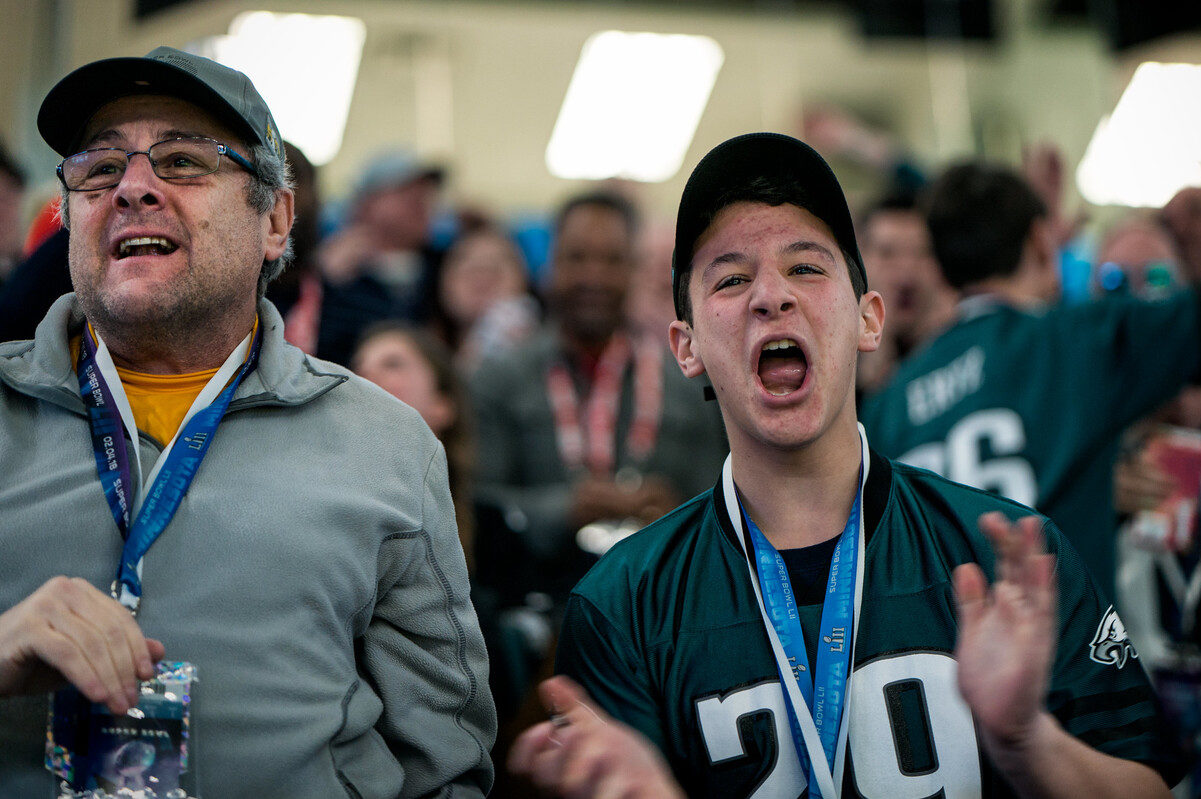Skift Take
Arizona officials acknowledge that hosting the Super Bowl is a gargantuan effort. But they believe they're much better prepared for the challenge now than the last time the state welcomed the big game.
A mega-watt spotlight falls on Arizona on Monday as a week-long celebration of the National Football League’s title game will prove the ultimate test for the Super Bowl hosts.
Going to the Super Bowl is every players’ dream but hosting it could be a logistical nightmare in the wrong hands, with high stakes and a league that demands perfection for the world’s most-watched annual sporting event.
“Everything from liquor licenses to bus service is impacted by the Super Bowl, so we’ve been working since the day we earned the bid to be ready,” Phoenix Mayor Kate Gallego told Reuters. “It’s really all hands on deck for the city of Phoenix.”
She anticipates some one million people will come through Phoenix’s downtown, which has been super-sized since the city last hosted in 2015, with the number of restaurants nearly doubled and 10 million square feet of buildings added.
In nearby Glendale, which plays second fiddle to Phoenix in recognition but will, in fact, host the Super Bowl game at State Farm Stadium, the influx of out-of-towners is a chance to put themselves on the map.
“We weren’t very well positioned to leverage the benefit of the Super Bowl in 2015,” said Glendale City Manager Kevin Phelps. “We only had just roughly around 800 hotel rooms within walking distance of the stadium.”
Now, the town has some 1,800 rooms and expects to have roughly 3,000 next year when the men’s collegiate basketball “Final Four” comes through the region.
But with that development, the opportunity to host also presents a calculated financial risk, with public safety measures, traffic accommodations and permitting all coming with a price tag.
“We’re (at) about $4 million of Glendale money to help make the Super Bowl come to reality. We will not recapture that $4 million in direct spending or net tax benefit back to the city,” said Phelps.
“However, what we know will happen is people will come here, they will see all the amenities, fall in love with the area. And then what we want to do is leverage them to come back.”
Good Blueprint
The competition to secure a hosting bid has seemingly become fiercer with each passing year, as flashy new stadiums in Las Vegas and Los Angeles, the 2024 and 2022 hosts, respectively, are a tantalizing draw.
And the old standbys – 11-times host Miami and New Orleans, which will host for the 11th time in 2025 – seem to have little difficulty attracting the NFL’s eye.
Arizona, which is hosting for the fourth time, sees little reason why it should not be counted among the more appealing options.
“From 2015 and Super Bowl 49, we had a very good blueprint of how we effectively hosted Super Bowl,” said Jay Parry, the Arizona Super Bowl host committee president and CEO.
Parry, who held the job in 2015 as well, said a crew of some 5,000 volunteers will be deployed at airports, hotels and events to help everything go to plan, with the goal of embracing the NFL’s exacting standards.
“We actually love how big the NFL makes this, how much they invest and commit to make it the best single day sporting event really in the world,” she said.
(Reporting by Amy Tennery in New York; Editing by Ken Ferris)
This article was written by Amy Tennery from Reuters and was legally licensed through the Industry Dive Content Marketplace. Please direct all licensing questions to [email protected]
The Daily Newsletter
Our daily coverage of the global travel industry. Written by editors and analysts from across Skift’s brands.
Have a confidential tip for Skift? Get in touch
Tags: arizona, nfl, phoenix, sports, sports tourism, super bowl
Photo credit: Philadelphia Eagles fans (pictured) - as well as those supporting the Kansas City Chiefs - will come to Arizona in large numbers for the Super Bowl on February 12. Lorie Shaull / Flickr
